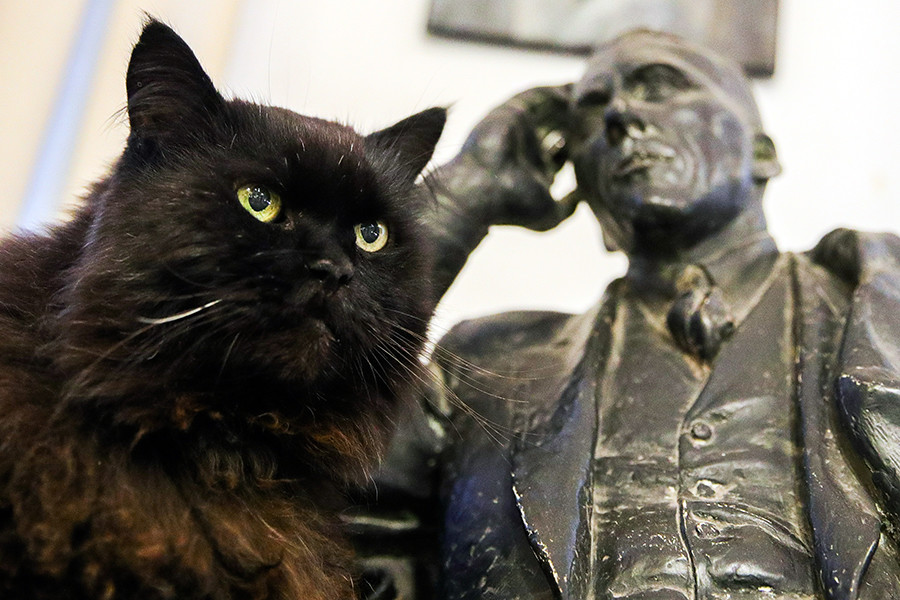
Actually, cats have been protecting the Hermitage from rats for 270 years, since the times of Empress Elizaveta Petrovna. Now more than 60 live here supported by a bunch of volunteers and veterinarians. Senior cats live in the Republic of Cats cafe near the museum.
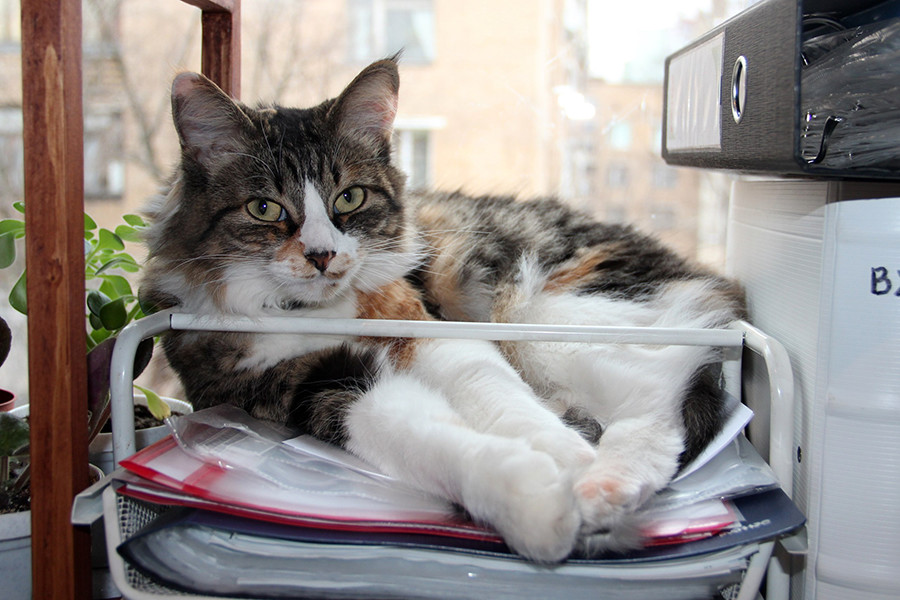
Vasilisa starts her working hours by greeting the museum workers. During the day she inspects the rooms and takes part in almost every meeting. Like a real museum expert, she likes to spend time in the science library.
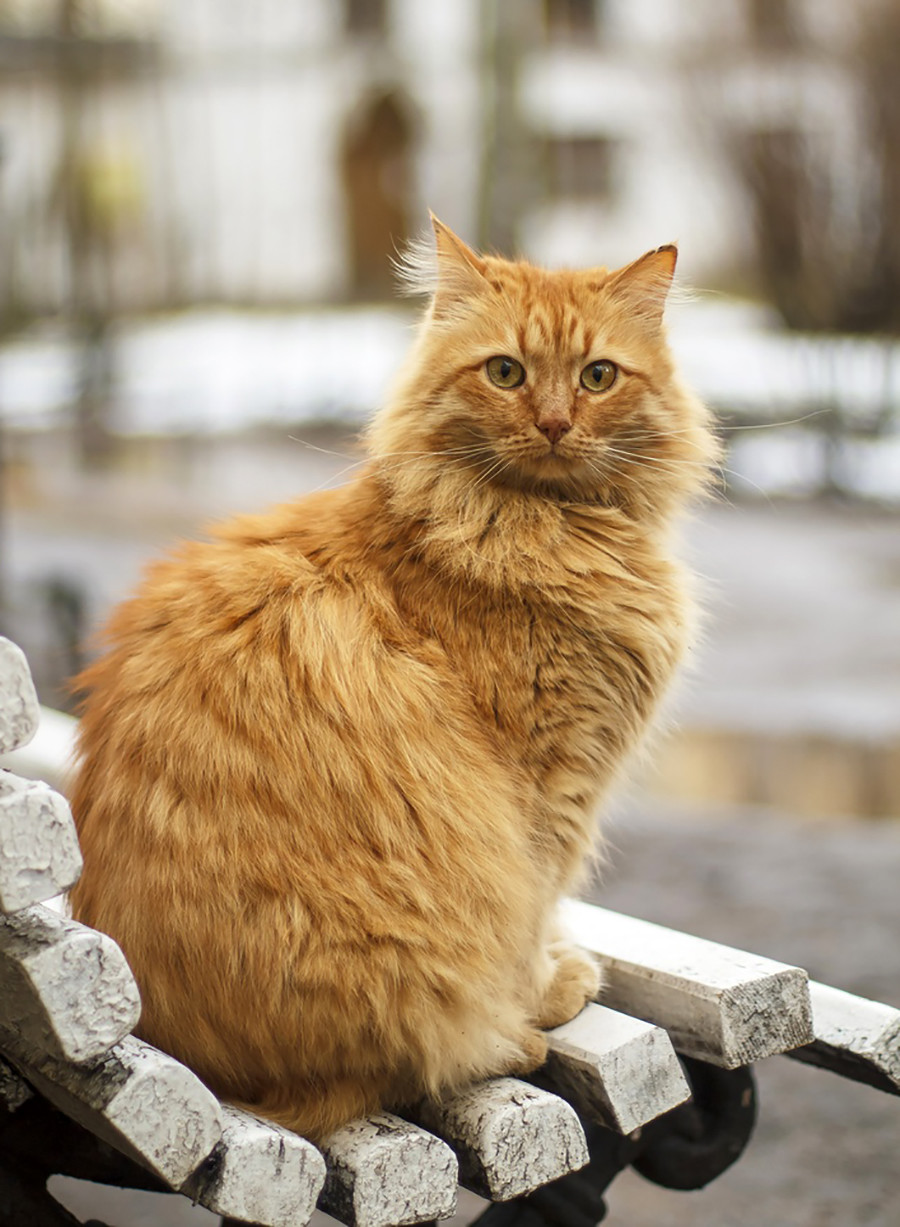
Kesha.
Mosgortur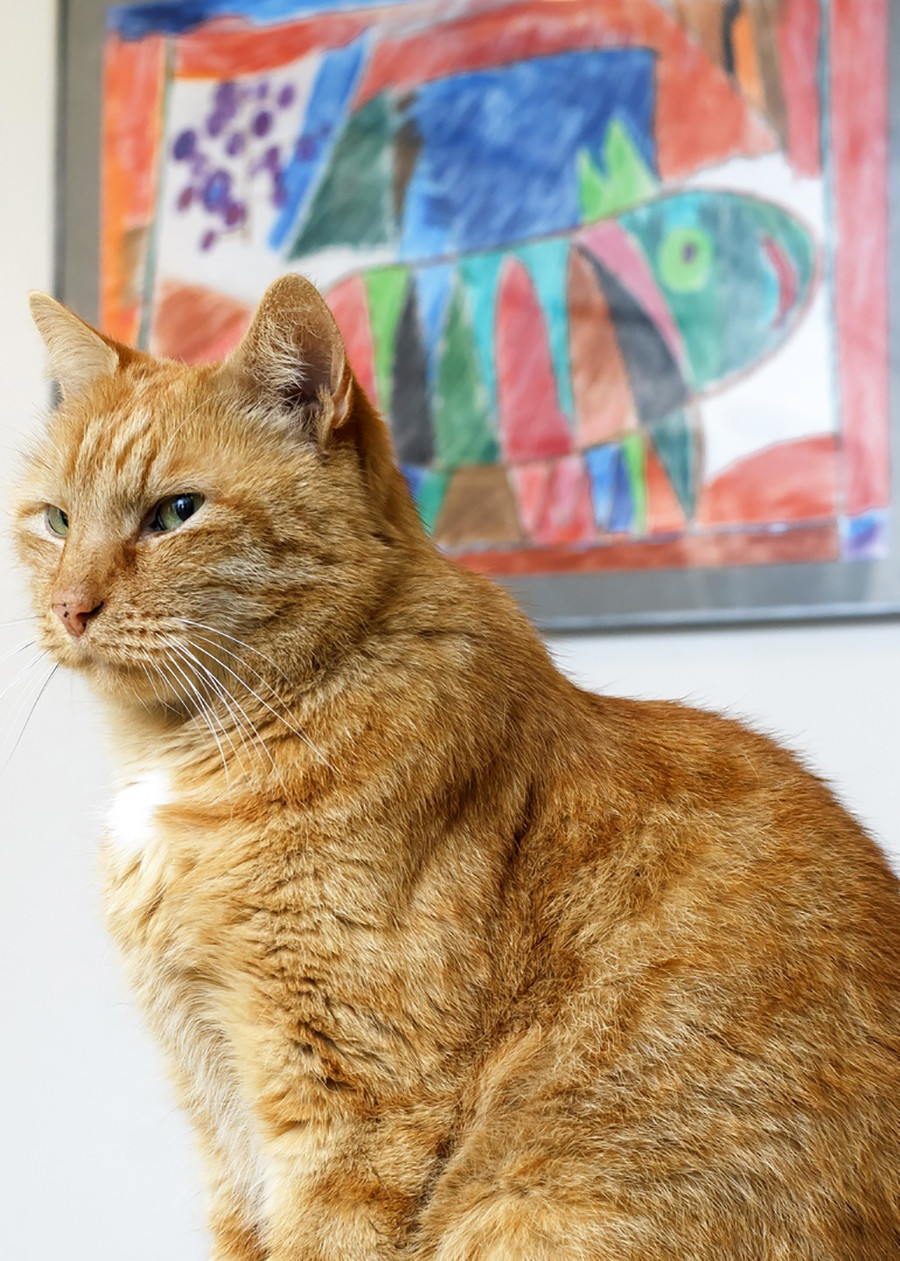
Ryzhy.
MosgorturAll three cats visited Anna Akhmatova’s Museum occasionally before deciding to stay permanently.
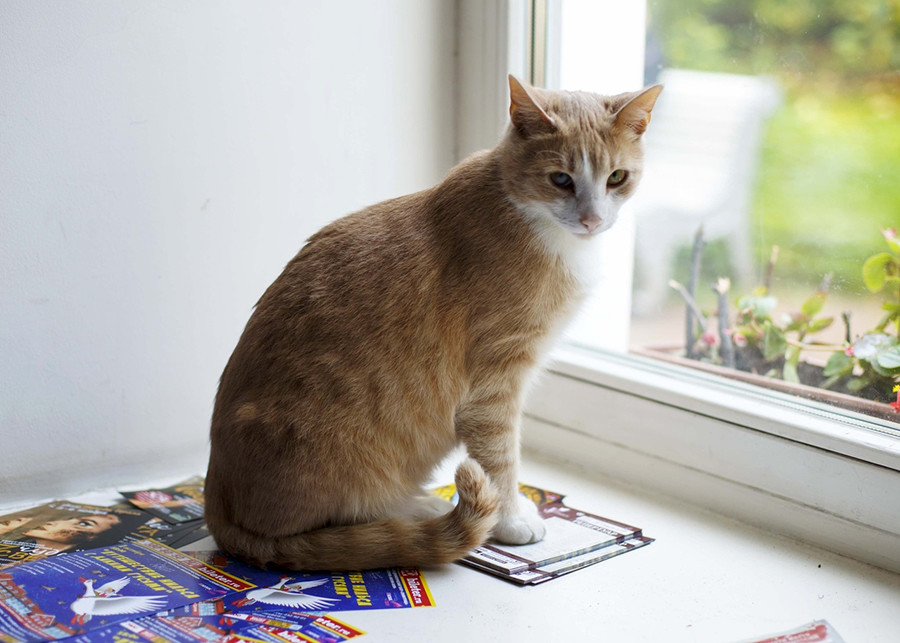
Persik.
MosgorturThey like to spend time together, are they plotting something?
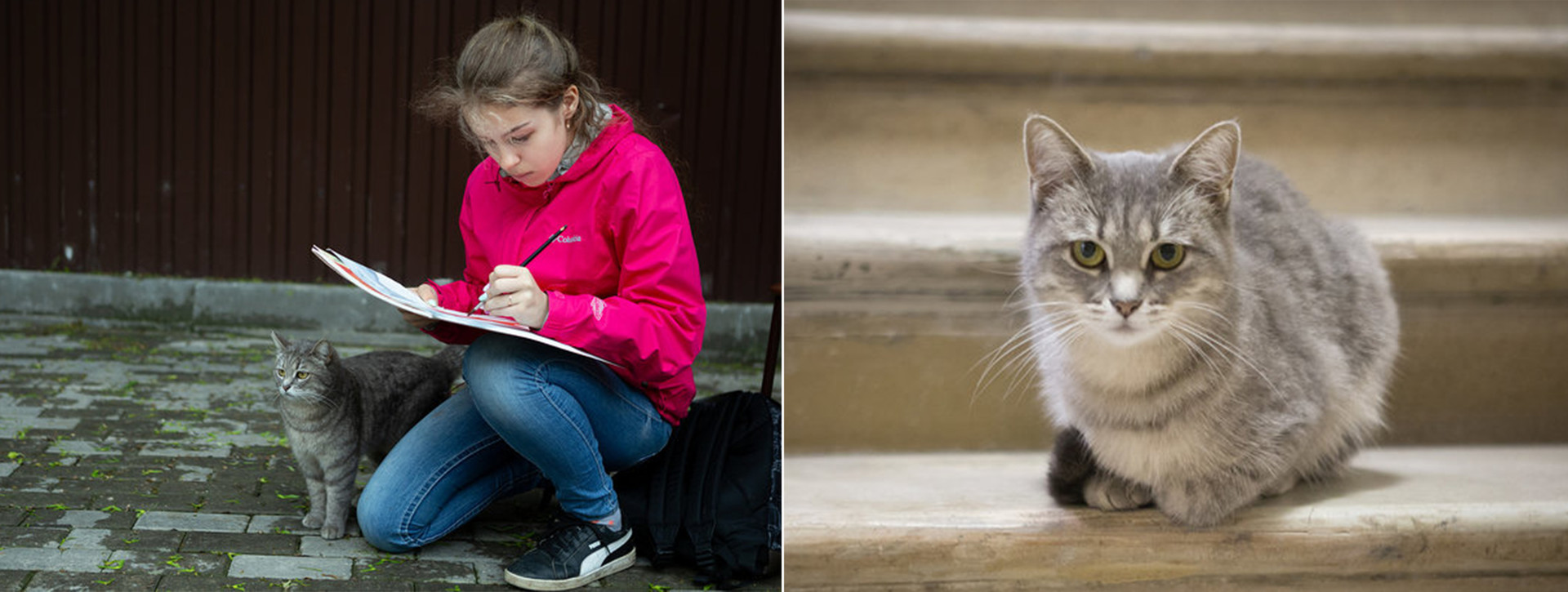
These two felines appeared in the museum several years ago as kittens. When Zaya came here she was very ill, but she’s become a big important cat who lives a luxurious cat
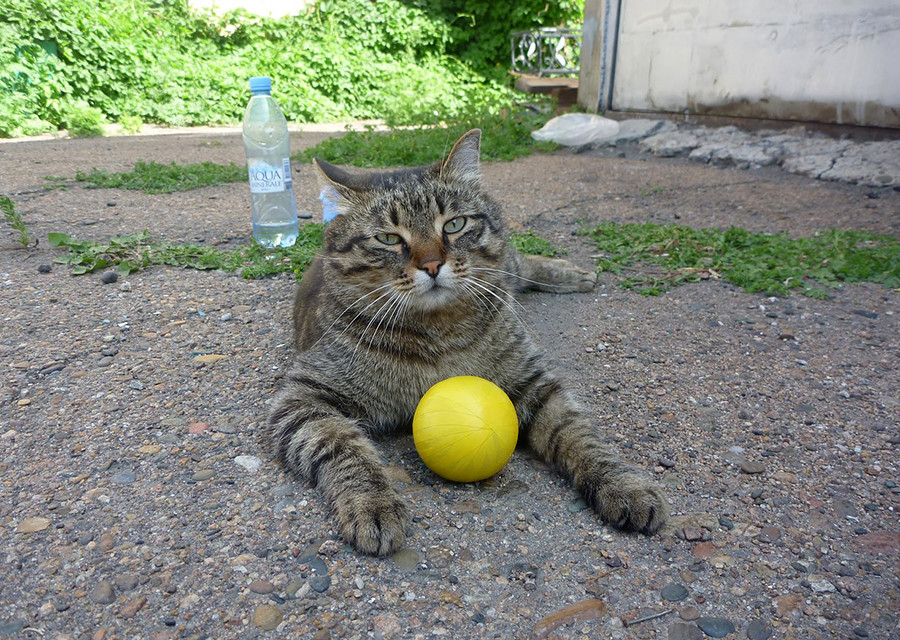
Samuel has been living here for seven years. His favorite spot is on top of the cupboard. He guards the staircase, plays piano, and “works” (we mean walks) on a typewriter. Normally museum workers don’t like it when he does this but they allow it only if Sam catches a mouse.
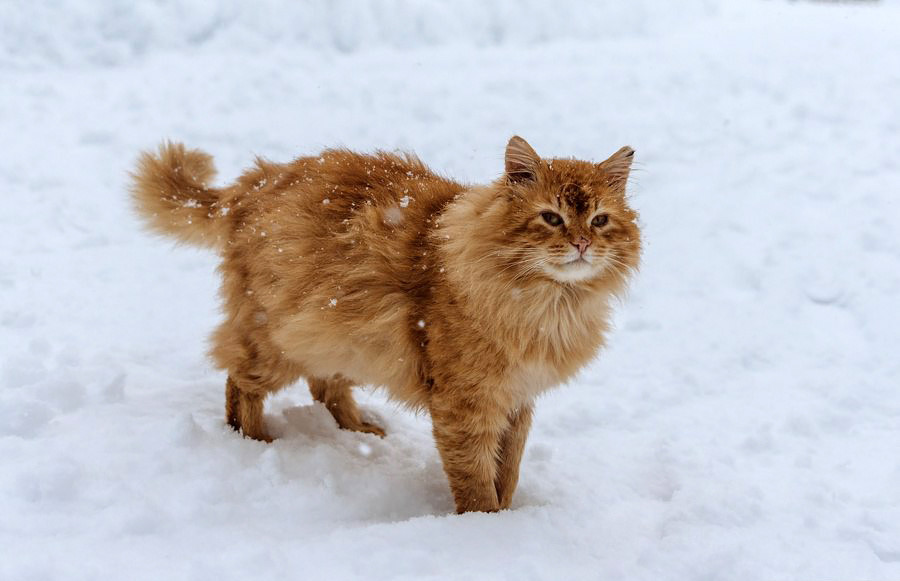
Pushok.
informpskovThis cat guards the area of the estate where famous Russian poet Alexander Pushkin used to live and work. For the last five
Once he was not invited to the opening of an exhibition so he looked forlornly at the party through a glass door. When he was finally let in, he turned his back and proudly walked away – a cat at its best
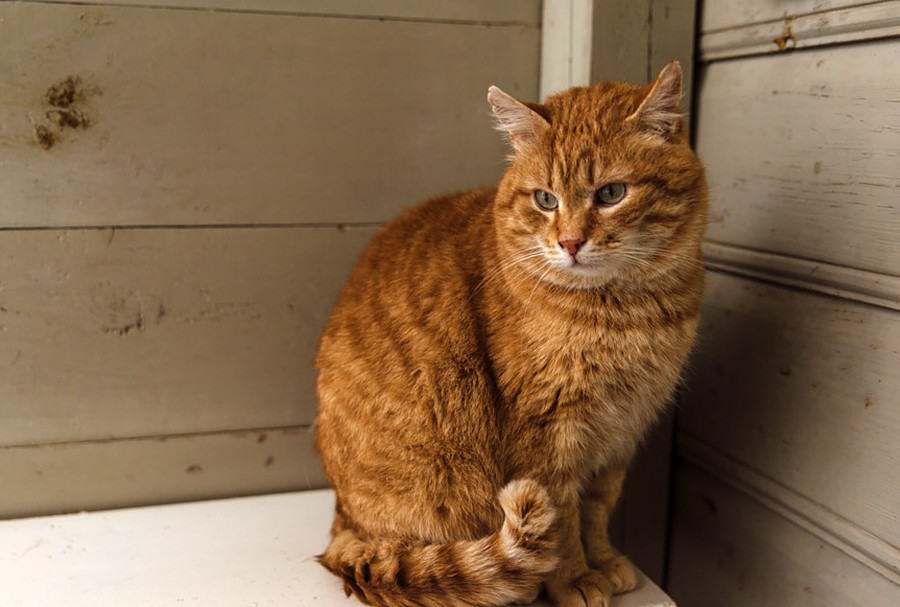
Ryzhik.
informpskovFilimon is the first and the only worker in Vyborg Castle with a tail. He even has a document proving it. His main responsibility is to catch mice and pose for tourist photos. He does both brilliantly.
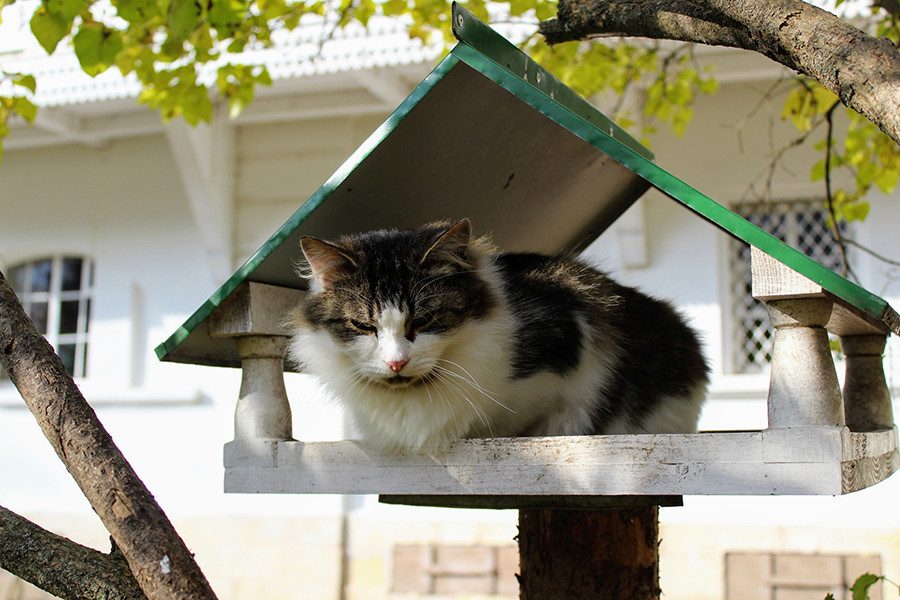
The Leo Tolstoy estate welcomed cats before the formation of the modern Russian state – they appeared here during the Soviet Union. They were brought to the museum by residents of neighboring villages, and now there are three "clans" living in the spacious estate: Black, white and striped.
If using any of Russia Beyond's content, partly or in full, always provide an active hyperlink to the original material.
Subscribe
to our newsletter!
Get the week's best stories straight to your inbox